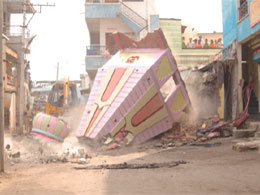Washington, May 6: The Chinese Army is indulging in aggressive behaviour in the South China Sea and the Chinese Communist Party has ramped up its disinformation campaign to try to shift the blame on coronavirus and burnish its image, US Defense Secretary Mark Esper said on Tuesday.
"While the Chinese Communist Party ramps up its disinformation campaign to try to shift blame and burnish its image, we continue to see aggressive behaviour by the PLA in the South China Sea, from threatening a Philippine Navy ship to sinking a Vietnamese fishing boat and intimidating other nations from engaging in offshore oil and gas development," Esper told reporters at a Pentagon news conference.
Last week, two US Navy ships conducted freedom of navigation operations in the South China Sea to send a clear message to Beijing that America will continue to protect the freedom of navigation and commerce for all nations large and small, he said.
Many countries, Esper said, have turned inward to recover from the pandemic and in the meantime, America's strategic competitors are attempting to exploit this crisis to their benefit at the expense of others.
Responding to a question, he said the Chinese have not been transparent from the beginning on the coronavirus pandemic.
"If they had been more transparent, more open, upfront in terms of giving us access, the reporting, giving us access not to the people on the ground but to the virus they had so we could understand it, we would probably be in a far different place right now. But where we are now is this," Esper said.
China needs to allow the United States in to talk to early patients, Chinese researchers and scientists, and to have access, he added.
Instead, Esper alleged that the Chinese are trying to capitalise on this by promoting their own image that somehow, China is the good guy here.
"Despite everything they did or, more importantly, failed to do, now they want to go out and say well, here's masks. We will give you masks, provide this, or provide that, we will provide you funding. Look at all the good things we are doing," he said.
"Yet, what we know is that they provide masks, they provide supplies. In many cases, it is not good. It does not do what it is supposed to do. It is broken equipment. Also, the strings attached are enormous in many cases. So, they are telling a country you can take these masks, but please, put out publicly how good China is, how great we are doing, et cetera, et cetera," Esper said.
"So there is a number of things they are doing to try and burnish their image. That is just two of them right there," he said.
The Chinese are also doing a lot of strong-arming behind the scenes, Esper said and referred to the war of words between China and Australia. He said he plans to talk to his Australian counterpart later in the day.
"All these activities are going on. It is straight from the Chinese playbook. Once again, it is just a little bit more obvious this time with what they are doing and how they are using a combination of compelling and coercion and everything else to try and shape the narrative and burnish the image of the Chinese Communist Party," Esper said.






Comments
Add new comment